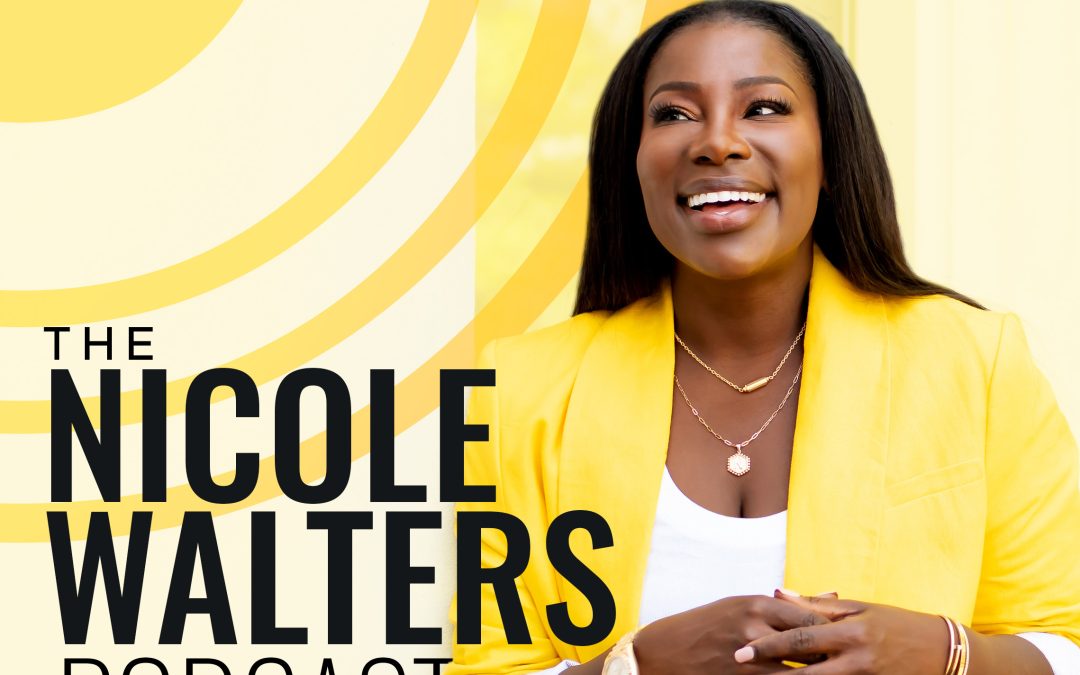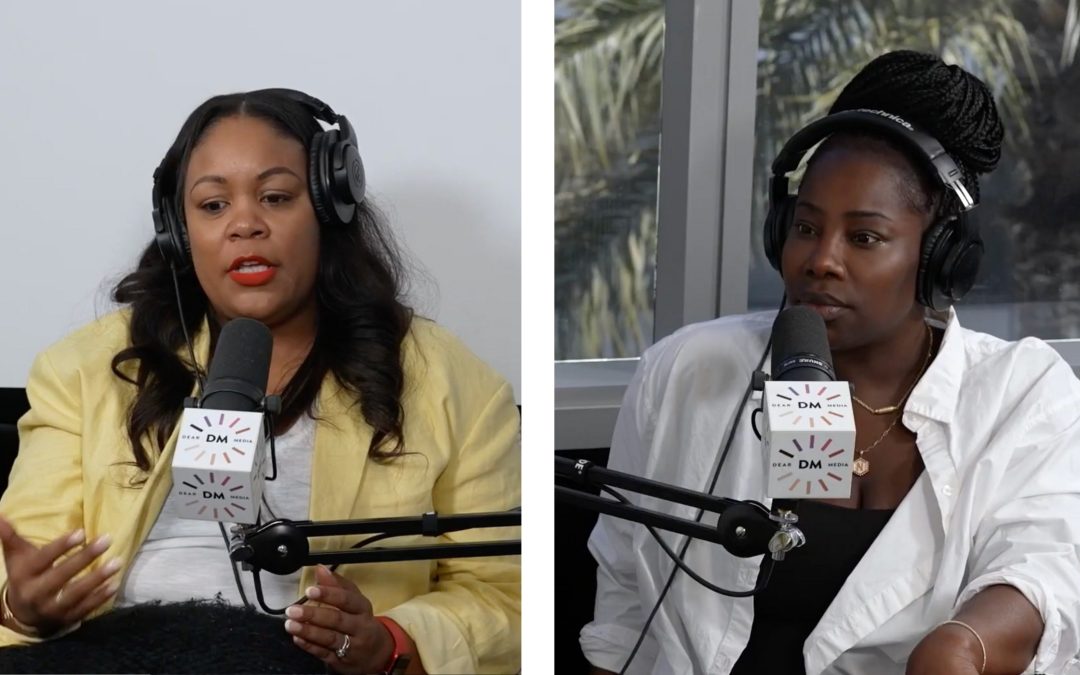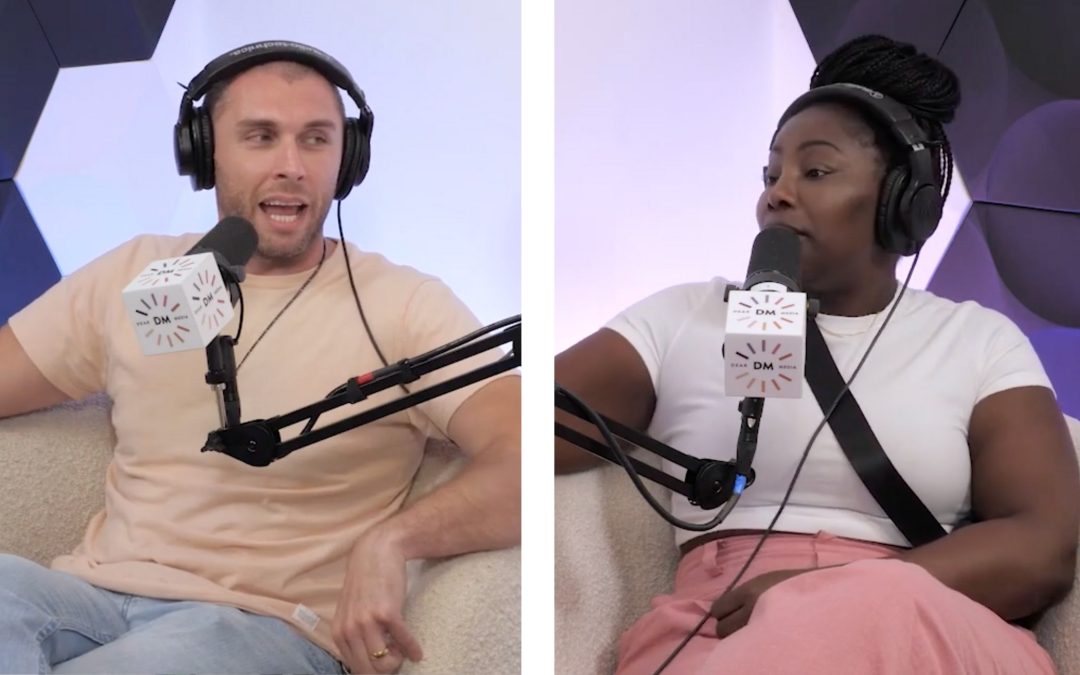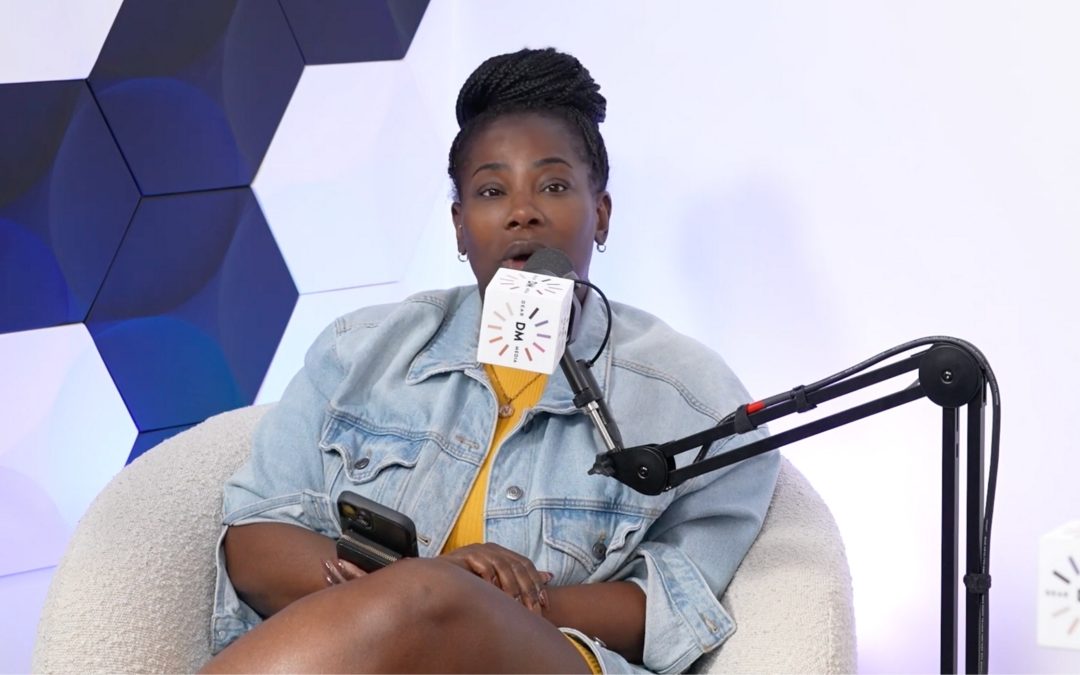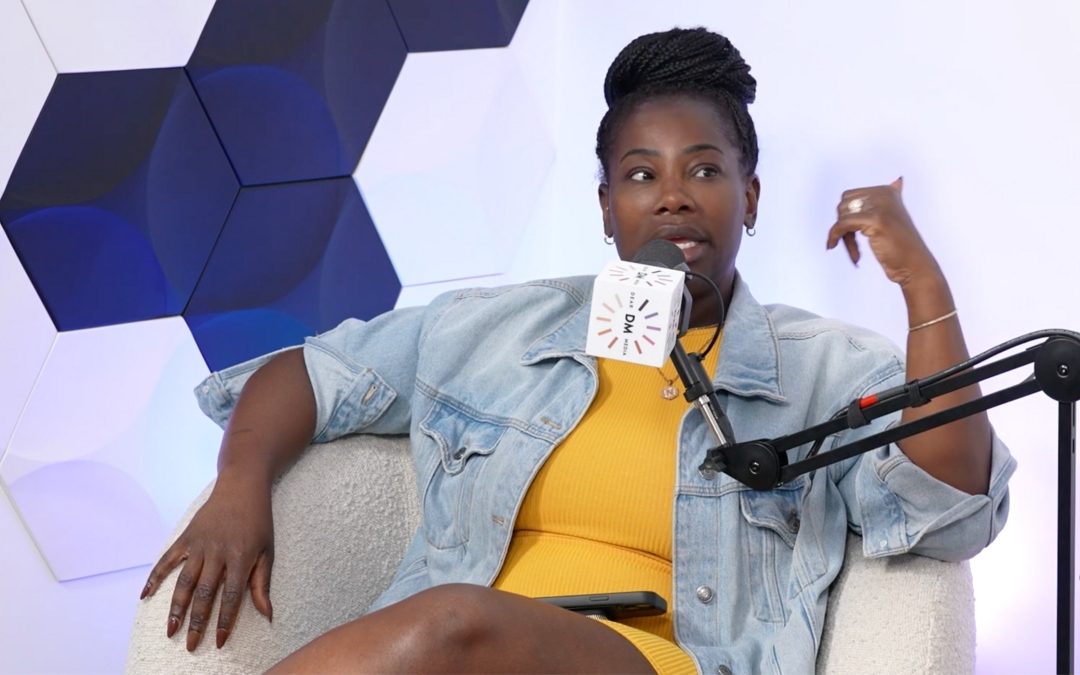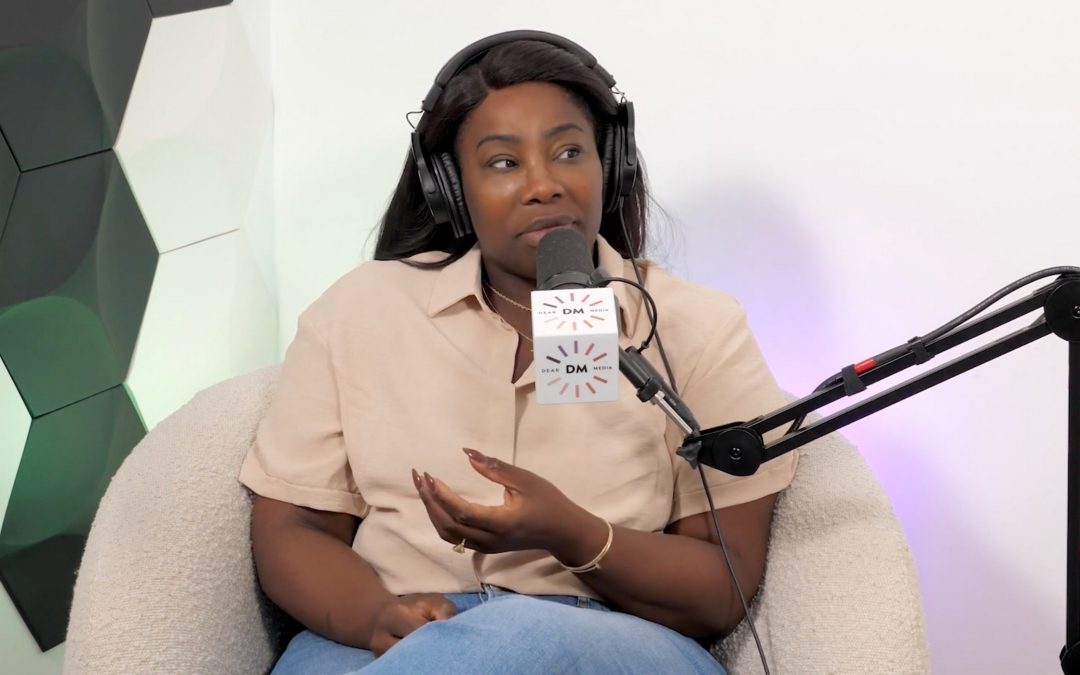
Can you LOVE adopted kids?! Part 1
Can you LOVE adopted kids? Part 1
Friend this chat is personal and I get a little fired up about this subject but when it came up this week, I knew I needed to chat with y’all about it.
Today we’re chatting about loving adopted kids, choosing to parent a child in ANY circumstance, and what is okay to ask an adoptive parent (and what ISN’T!)
Thanks for having these tougher chats with me. This one was needed and I appreciate YOU. Let me know what your thoughts are over on Instagram @NicoleWalters.
Don’t miss part 2 with The Misterfella, next week!
Nicole:
Hey, friends. So if you’ve been keeping along with what’s going on on social, if you aren’t, I’m over at Nicole Walters on Instagram and also on Facebook and TikTok and all those little Jimmy jams. But, you know, it’s back to school season. And you know that the Puffin, my little one, is 11 years old and officially in sixth grade. She’s a middle schooler and this is such a formative and important season, if you are a mom or an auntie or sister or heck, if you remember it for yourself. 11 to 15 is a wild season of life.
So, you know, a lot is happening around here. And I know a lot is happening in your homes with back to school and just transitioning into fall. So sending all the energy and vibes for that. But the thing I want to talk about is actually something that happened. And I don’t want to say that this chat is awkward for me. But I get a little fired up about it because it’s so personal. And if you are an adoptee or adoptive mother, or if you’re someone who’s ever been responsible for taking care of someone else’s kids, I think you’re gonna feel the heat, and the charge of what I’m going to tell you. It’s actually the most offensive thing that I think someone can really say, or at least up there with the most offensive things that people could ever say to an adoptive parent, or legal guardian or someone who’s in care of another child. And it happens often.
And it’s, I mean, I’ve had the girls, if you’re just keeping up, you can go back to episode one of season one to hear our story, our adoption story of how I got three girls, you know, gosh, at this point almost decade ago, at ages 3, 11 and 14, and now they’re 11, 21 and 24. And if you don’t listen to the pody, I do have a book that is coming up on October 10. But it’s available for pre-sale now everywhere. You can go to NothingIsMissingBook.com. It was just named as Glamour Magazine’s one of the top five memoirs in 2023. And it was also named as one of the top seven books by black authors in 2023 by Ink Magazine. So I’m really grateful, really excited about that. And, you know, we’re gearing up to publication date, which is October 10, but you can grab it now.
But the story of my girls and adoption and family and building a business and you know, beating stage for cancer, all those things are in the book so you can catch up there. But over 10 years, one of the things that’s come up often when people hear about your adoption, story, and trust, if you have fostered anything you already know what I’m going to say, but people often have an inclination to question, the best way to say I’m just being transparent, I’m getting them getting to that age where you don’t want to filter as much anymore. You know what I’m saying? We just want to say it. And this isn’t a headphone warning for the kids, but I am going to be forthright, where people will ask you, you know, or make comments around whether or not you can love your kids as much as a biological parent.
And I know some of you are like, what, like, people do not say that. But I will tell you, it comes up a lot, a lot, it is always a subtext or a conversation where people always kind of wonder if it’s possible to feel the same way, have the same connection, love them as much. You know, there’s always a sort of, and it’s the way that it said and the way that it comes up that I think a lot of you may not realize, you know, or heck may have even done yourself, you know, I’m sure what the best intentions because most people don’t mean to sound inappropriate when they say it, but it comes up.
And it’s usually comparative, as if you know, life is, you know, the love of a child is to be compared with biological, which is considered the highest form of love, all the way down to, you know, adoptive love, which is, you know, still really, really great, but not the same, right? Well, what happened this past week, really called to attention how both painful and difficult it is to see and hear this happen. And it happened because it wasn’t to me, it was to Alex. And, you know, obviously, to protect his privacy and the privacy of the people involved, I’m not going to name names, you know, but I will, you know, tell you about the situation.
So essentially, Alex was, you know, hanging out with some people, and the conversation came up about Puffin going back to school and he made a comment about how it’s been so amazing to watch her grow up. And you know, that he never thought he’d be parenting, you know, this way, so soon. And you know, how it’s just taken him by storm, but he’s so excited. He’s so proud of, you know, how much she’s matured over the year and how he’s feeling a little emotional, you know, watching her go into middle school and seeing her jump into this new chapter, and how meaningful that is, I mean, just really sweet stuff. And these are the things he says all the time, like, this is just when I tell you, this guy was built to be a papa, right, like that is just as hard wiring. And he’s a good, good man that way.
And one of the responses, you know, to the statement was, dude, you act like you raised her or something. And it’s interesting, because just, you know, to make completely and abundantly clear, he is raising her, you know, this isn’t a situation where, you know, it’s a measurement of when he came into the raising process, he is actively raising this child, every day, he performs all responsibilities related to fathering, and being present for this child, and he does them exceptionally, in a way that is only indicative of why I would want to have more children with this man, because we are all so blessed to have him in the role of a father in our household.
But aside from that, it’s it just kind of called into question, it was something that we were talking about, which, you know, I’m gonna throw out to y’all, and you can send me DMs about it or, you know, you can, you know, we can have a conversation about it on social, but when is the right time to say that you love a child enough as if they’re your own? You know, because it comes up so often where people will say to me, Well, you know, it’s not like you carried them? Or, you know, gosh, it’s so great, this is often what said, it’s so great, that you were really able to open up your heart, you know, to these older children. Or gosh, do you think that there’ll be any issue when you have your own kids? You know, just kind of, you know, will the girls be okay with siblings? Since you know, these will be your biological children.
And it is so interesting. I’ll tell you the standpoints, you know, if you’ve ever said something like this really just being curious or whatever, you know, or if you’ve heard this as an adoptive parent, the number one thing that adoptive parents always worry about, is one I would say by and large, being rejected by our children because we’re not their biologicals. Like, it is always on our heart. It is always something because we love them so dang much that we always worry that we’re going to come up short. The same way that biological parents worry that like we’re not enough or that we aren’t providing enough or that we’re going to mess something up, because we love our kids, we worry, you know, adoptive parents worry about all of that. And then we also worried that someday, in some moment, they’ll turn to us and say, you’re not my real dad, you’re not my real mom. And those words cut at your soul.
And the reason why they cut at your soul is because, again, as someone who has not carried biologically, if that is, you’ve heard me say this before, that is like 100%, the deepest love because I don’t want to take away from whatever it is to be a blood tie. And I only say that because I have not carried. It could be the same because I intend to carry someday, and I’ll speak to you about that once I know, you know, but if that is 100%, I love my babies. 99.9999. Right, like, I’ll give the smallest of inch for that. And so when I tell you that, if my kids said that to me, it would I would be devastated, you know, and I’ve been really blessed that is has never come out of their mouths, you know, but I will tell you, it’s like, the greatest fear is that, you know, you’re gonna love them this hard, and they’re going to feel like you’re still inadequate or not enough, or that they are still lacking in some way, shape, or form, based on your presence and who you are.
And you already carry that fear all the time wondering that any moment that could happen. I mean, literally for the entirety of your parenting of your children, at any moment, on any day, they could turn around and say that, and you just carry that right? To have someone articulate, externally, the very hurt and fear that you have as a parent is so painful. And then aside from that, I think a lot of people take for granted what it takes to be an adoptive parent. And again, I don’t say any of this comparatively, to being a biological parent. I think that is one of the other big misconceptions is that people believe that it’s comparative, like one is better than the other or one is realer than the other one is heavier than the other. Look, it takes a strong human to rear and raise and accept responsibility, financially, emotionally, all of the above, for a child.
There is a reason why, you know, through divorce through breakups, through you know, moving through whatever that a lot of adults, their inclination is to abandon or neglect their children. Because it’s hard work, it is not immediately rewarding, you know, on many days, it is something that is challenging to every part of who if you can’t grow yourself, right, because being a parent is constantly evolving and growing yourself to meet the needs of another. It is the ultimate sign of being able to give.
And I gotta tell you one thing that I’ve learned, you know, in my ripe old age, is that someone who can parent their pants off is usually a hell of a friend, and a hell of a spouse. You know, and, you know, Alex has always told me that when he was looking for a partner, one of the major considerations is, could I see this person being a mother? Because he always knew he wanted kids. And he has a great parental relationship with his own, you know, family. So he’s like, if I can’t see her being a mom, I know, she can’t be my spouse, you know, and he always says it was a blessing, because he got to see me being a mom and a dad. So you know, so he’s like, it’s like, I already know what I’m getting. And I love it, you know, but I say all this, let you know that, you know, when people talk about it as an adoptive parent, it takes so much, especially when you’re adopting older children, because you’re coming with like, pre-made stuff
You know, they’re arriving at your house, sometimes with a history that they don’t even know how to communicate, I can’t tell you how many times in their early rearing, when they were younger, they would tell me things that I would have to control my face to not show how I felt, because they weren’t even aware because of their limited worldview and their limited experiences, how not okay some of the things they’d experienced were. You know, and I just would have to, you know, Oh, tell me more about that. Well, how did that make you feel? When inside I wanted to, like, set everything on fire. You know, or I wanted to say that was never okay. I mean, there are times where I did have to say that but, you know, that was never okay, or that isn’t a thing. I mean, you are trying to meet all of their needs as an adoptive parent, in the regular sense, which is, you know, food, clothing, water, shelter, entertainment, nurturing, societal, you know, skill set, soft skills, hard skills, like sports, entertainment, like, you know, values, like you’re trying to do all of the things that you have to do as a parent every day, which can break you right, you know, is so, so hard to do, you know, as a parent or biological but on top of that, you know, usually if they’ve come into your stead, come into your care, it’s because there is trauma that may have occurred.
Or even if there’s a trauma, there’s a shift that you know, you’re always trying to accommodate or make up for and so, you know, to say that that desire that energy that acceptance of responsibility is birthed out of anything other than the purest love, it is difficult and baffling, right? It’s especially if the person actively chose it or sought it out. And that love when I tell you is it supersedes all it is unconditional because that child has wanted in the, in the worst of ways, right? In the best of ways. So, you know, so there’s that end of it, right. But when you talk about people who come into adoptive situations, like step-parents, or bonus parents, or, you know, someone who serves as a legal guardian, or a supportive communal village-style parents, so I’m talking about the aunties who have chosen to remain child-free, and are regularly involved in lives.
We have someone in our life who we just love, you know, my kids, Uncle Olando, and he is one of the most incredible, kind, generous, strong-valued and protective men, you know, in my kid’s life, and, and in my life, I mean, this man truly cares for me, he is like, you know, I didn’t even know I’d get a brother in my life, he is such a good man. And what’s incredible is, you know, gosh, I want to surround my kids with strong male perspectives. And, you know, figures because I want them to grow up choosing, you know, the right type of men, because they’ve only ever been treated with that type of respect.
And so, you know, my girls, Uncle Olando is a great example of, you know, someone who is in their life and fathering them, you know, with every ounce of their being, this man will show up at a science fair, if I’m running late on the highway, and I call him and I say, Olando, I am not going to make it you know, I for her presentation, I think it’s going to be late, you know, he will show up with a bouquet of flowers to make sure she has a person, oh, I’m trying to get teary, you know, my girls are so blessed, right? They’re so blessed. And so surrounded by love. And I would never question, you know, how long he has to be in her life, in order for that love to be legitimate.
And people don’t realize, though, when you say things like, Well, you never raised them from the beginning, you’re questioning the legitimacy of the love. And one, why? Why does that even matter? Why does that legitimate legitimacy even matter? It’s love, like, let him have it? And then the other question, and this is, you know, for those of you have heard this or may have said it, you know, the question that I always pose in response, because this happens often enough, you know, like, we’re, for instance, on Alex, for Father’s Day, you know, people were like, wow, I didn’t even realize you were really a father, you know, to say, Happy Father’s Day to you, you know, because he didn’t go through the pregnancy and the delivery, and he is newer to the father role.
You know, but oh, he does all the things that a father does, you know, and he shows up, and he has, experientially, you know, in private ways that we won’t share, but he has been exposed to and subject to things that he has had to help, you know, Ally, our little one heal from and support her in in ways that, you know, most fathers never do. And he’s excelled.
And so, when people say these sorts of things, you know, it’s really painful, because he’s over here, like, you know, how long do I have to raise her before I’m allowed to love her? You know, when we have our first biological child, you know, and add, you know, to our family, you know, is at that point, is Ali considered to be his, you know, or is he considered to be one of the people who’s allowed to love her well, in the capacity and form as a father? I mean, when I asked those questions, and you hear them, you know, doesn’t it instantly make you say, like, you know, what, is it three years? Is it a year? Is it five years? And also, why does it matter? If someone’s doing a great job, and they’re showing up and they care, why does it matter?
You know, if Ally ends up, you know, at the end of, you know, her life having 13 Dads, you know, not just for me, you God willing, right, you know, a god willing, not me, but you know, collecting male roles that serve as a father style experience and support system, uncles and dads and all of that in her life. You know, great. Great, you know, love should be multiplied, you know, and it’s just such a beautiful thing. And I spent some time with Alex, you know, we went out for we do a dog walk in the morning, we if you keep up on social, you know, we just got a dog and together as our family, we’re very much strong people and his name Sir Barrington McCoy. And Barry, as we call him, you know, is three and we got him from a local shelter. And you know, he’s living there for two months and sweetest best dog in the entire world and we’re working on walking on leash, you know.
He’s great on leash but he pulls a little. So we walk together and it’s kind of one of our family things in the morning. We’ll go for a walk in the evening. and go for a walk. And we just kind of get outside one of the beauties of California, you pay high taxes for the sunshine. So we’re on this walk, and we decide to go get coffee and bagels. And I can just see that Alex was really affected by this, because he’s like, I know how I feel, you know, if I’m able to know that I want to marry someone and commit to them, you know, within the first few months of meeting them, and you know, make that commitment within a year, you know, and know that this is who I’m going to be with at to the point where I’m going to make more humans with them, then how long does it have to be for me to want that same relationship with, you know, my future children as their stepfather?
So how can we in society, look at people who have been together for six months, or heck, people who are in arranged marriage and never even met, you know, if you look in Jewish Orthodox marriages, they have this time at the end of the wedding called the hood, which I think that’s the right word for it. And in the hood, it happens after the ceremony, and it’s actually the first time that the bride and groom are alone together. And if you look at, you know, some East Asian relationships, you know, they’re arranged marriages prevail, and same thing in, you know, Africa and Western Africa Central, you know, where the introductions are done through family. And you may not have that relationship at all, but you know, these marriages will last 40, 50 years, and you know, a lot of them will be just deeply in love. And it’s just very interesting, because, in those contexts, it’s considered, this is so beautiful, they just knew, you know, but then we’ll question it in the form of adoption, or a child, and maybe it’s because a child, you know, doesn’t have the freedom to opt into the relationship as much, but at least in our home, yes, they do.
I tell my kids every day, thank you for choosing me. Because we chose each other as family, all three of my kids, my 24 year old, my 21 year old, my 11 year old, I say thank you, every day that you choose me to be your mom, because it’s my greatest privilege. Like, I’m so grateful, you know, like, it makes me better. They’re amazing. And I love loving them. Like, it’s such a purpose in my life. And it’s such a beautiful blessing, I like the idea that I could be a mom of, you know, six, you know, kids is like, I don’t know if that would have happened without my babies. And I’m just so grateful, you know.
And so, assuming I crank out a lot more, we’ll see what happens. But you know, that being said, it’s just, I really want to encourage anyone who has ever wondered that or thought that, even from the best place in their heart, you know, of just curiosity to really just not say it. I don’t know how else to say it to you, you know, just, it’s not something to say because, you know, it’s already tap dancing on a sore place, you know, and then also, you don’t need to wonder because they do, you know, they do love their kids, and they do love them as much they don’t, they don’t worry about if they’ll love their bios more than the love, they’re, you know, chosen.
And I also want to encourage you, if you’re thinking of adoption, or if you’re thinking of fostering, or if you’re in this situation, to know that, that question is crazy. And you don’t have to worry about it, because there is no magical number for when you’re going to start, you know, loving your child. And, you know, for those of you who are wondering, kind of what does this mean, in the greater picture, sort of the 30,000 square foot view looking down, all of this boils down to and this is what me and Alex came to after we were sitting down for our coffees for a while, people’s people imposing their limitations on you. You know, they may be uncomfortable with, you know, their parenting, and so they feel like, I have to uphold my parenting as a biological as above yours, you know, it just makes me feel better.
Like, no one can love their kids as much as I do, you know, or maybe they’re confused or uncomfortable with the idea, you know, they maybe wanted to adopt, and they can’t, because I hear this a lot. I can’t believe you adopted older kids. And I’m like, kids are kids, you know, like, everybody has their stuff. You know, my middle daughter is 21. And she is by definition, you know, as people would say on paper, like just a really easy kid, you know, smart, obedient, kind, generous, you know, independent, like just a really excellent kid, you know, and the can of worms that we got with her was stage four cancer with six months to live, I mean, literally anything can happen, you know, so it’s one of those things where, you know, kids are children, there’s no such thing on this planet as a bad child. It like unless that kid is a diagnosed sociopath. You know, there is no such thing as a bad child. They’re just, you know, dealing with what, whatever was assigned to them.
Kids are inherently born good and filled with worth. And so it’s always interesting because people say to me, like, oh my gosh, older kids, how’d you do it? And so it’s just one of those things where if you’re feeling that this may be a journey you want to take, you know, I just want to encourage you to consider, you know, that it’s Okay, and the love can be the same. You know, it’s amazing how the heart swells, you know. And then if you’re a bio parent, you’re still saying to yourself on hearing this, gosh, I just, I can’t believe that I wish that anyone could love their kids, like if they didn’t have that caring experience, or the gestational process, or, you know, all of that, because it’s just so big, I’m not going to argue with you, because I haven’t done it, you know, so I’m not gonna say that isn’t true. But what I will tell you is, do you love some of your kids more than other ones? Maybe because the pregnancy was easier or harder?
Do you look at your, you know, if you had to choose one, could you choose a child, you know, and I will tell you that it’s very similar, I think in that field, you know, where there may be kids that you get along with better, understand a little more or, you know, connect with more or what have you. But at the end of the day, you love your babies. And that’s very much how adoptive parents feel as well. And we just have to be very careful with letting our own questions, insecurities and thoughts affect other people. So with that being said, a special shout out to my Misterfella who has stepped up and showed out, you know, and has stood in every single gap and, you know, you divorce, you know, partners, and you don’t divorce children, and it just takes a really strong, strong person to step in and show up in every way, you know, because she is, again, as I started this off with, at that formative age, where, you know, she’s deciding what, what a true man is, you know, and I’m just grateful because I’m in a partnership with someone who does love her and carries and accepts her as a daughter unwaveringly and has done that from day one. And that doesn’t surprise me because that is exactly what a parent does. And adoptive parents are real parents.
In this episode, we chat about:
- The most offensive thing I hear REGULARLY about adoption,
- Loving adopted kids,
- Choosing to parent a child in any circumstance, and
- What is okay to ask an adoptive parent (and what ISN’T!)
Resources and links mentioned in this episode:
- Pre-order my memoir, Nothing is Missing, HERE!
- Listen to Episode 1 of Season 1 for the story of How I Met My Daughters!
- Send me a DM on Instagram and Facebook!
- Book a 20 min call to see if working together is the right next step for you!
- Don’t miss our last chat where I talk about co-parenting with the tinies bio mom – Listen here!
- I love reading your reviews of the show! You can share your thoughts on Apple here!
More about The Nicole Walters Podcast:
If you’re looking for the strategies and encouragement to pursue a life of purpose, this is the podcast for you! Week after week Nicole Walters will have you laughing hysterically while frantically taking notes as she shares her own personal stories and answers your DMs about life, business, and everything in between.
As a self-made multimillionaire and founder of the digital education firm, Inherit Learning Company, Nicole Walters is the “tell-it-like-it-is” best friend that you can’t wait to hang out with next.
When Nicole shows up, she shows OUT, so tune in each week for a laugh, a best friend chat, plus the strategies and encouragement you need to confidently live a life of purpose.
Follow Nicole on IG @NicoleWalters and visit inheritlearningcompany.com today and click the button to join our betterment community. Your membership gives you access to a world of people and tools focused on helping you build the life you want.
